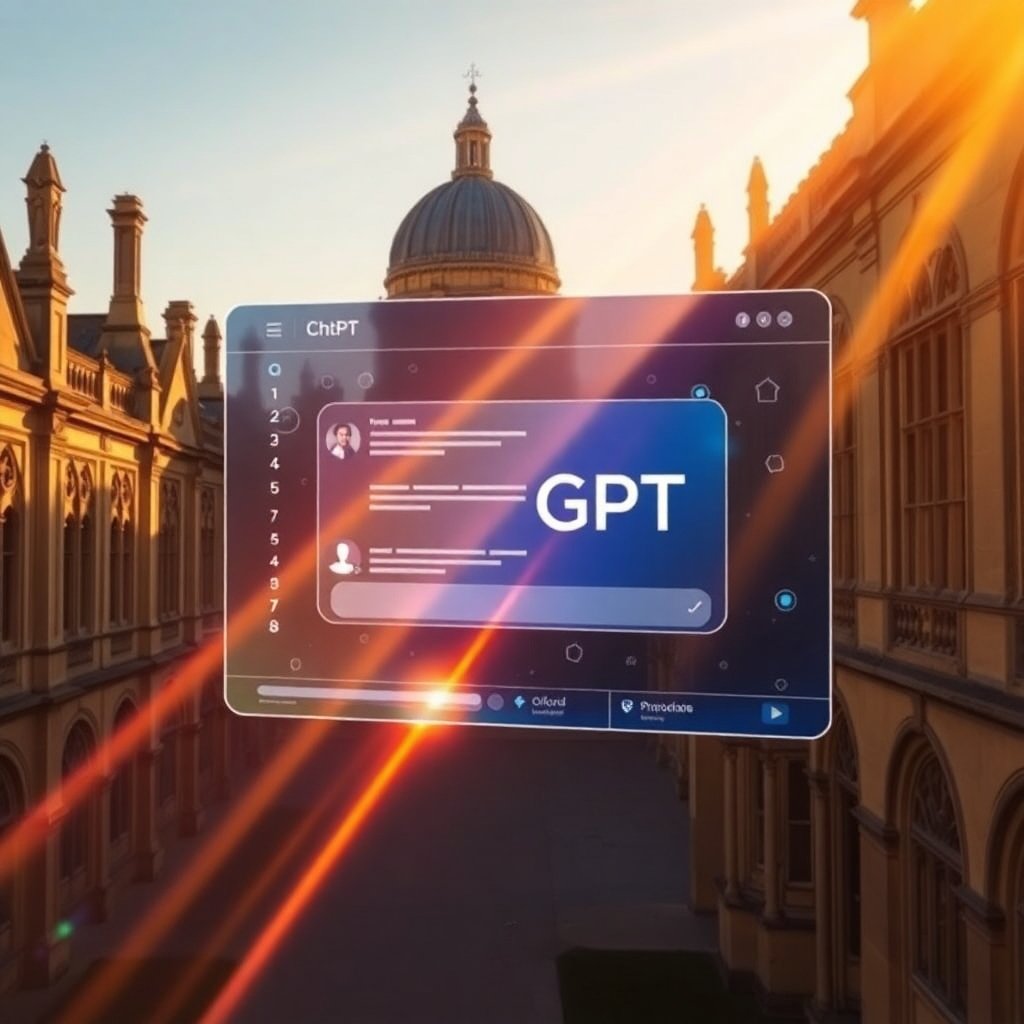Oxford Joins Forces with OpenAI to Set the Course of the Future for Learning and Research
Oxford University has bravely ventured into the future by announcing a revolutionary five-year partnership with OpenAI, creators of ChatGPT. Through the agreement, AI technologies at the forefront will be made available to students and researchers, paving new paths in learning, scientific discovery, and preserving history.
A Game-Changer for Learning and Research
Think of a world in which students are able to harness powerful AI to enhance their research, analyze vast quantities of data in mere seconds, or even create new ideas previously inconceivable. That is precisely what this collaboration has in store. Oxford researchers will enjoy exclusive access to the very latest models available from OpenAI, including a dedicated version of ChatGPT tailored for education.
Aside from AI software, OpenAI is even providing research grant funding, welcoming Oxford's brightest researchers to explore revolutionary applications of AI. From global warming models to miracle medicines, this can potentially turbocharge research in any field.
Bringing History to the Digital Age
The most thrilling part of this partnership is the digitization of the Bodleian Library's rare collections. These ancient documents, some of which have never been available online, will soon be available to researchers and history enthusiasts around the world.
"The Bodleian's purpose has always been to collect, preserve, and make knowledge available," said Librarian Richard Ovenden. "This collaboration allows us to use AI to make our collections more accessible than ever before.
AI at the Forefront of Oxford's Future
Oxford leaders see this as more than a technology surge—it's a revolution. "AI is accelerating scientific discovery and transforming the way we work with complex data," said Prof. Patrick Grant, Pro Vice-Chancellor for Research at the university. "We want to lead the way, so researchers and society can tap into AI's potential wisely."
This move is part of Oxford's involvement in NextGenAI, a scheme which pairs top US and UK universities with OpenAI to advance research on AI.
Oxford isn't just embracing AI; it's creating its future.
The Bigger Picture: What This Means for Education
The partnership is evidence towards a growing trend among academics: AI isn't science fiction—more so a necessity for learning and discovery. With the ability to access models of AI that have exponentially more capabilities to handle information, Oxford students and researchers will be ahead of the game in conducting research that's deeper and more influential.
As the AI technology improves, the main question remains: How can institutions such as Oxford ensure everyone gets a share of these tools? OpenAI's COO Brad Lightcap opines that partnership is key. "By collaborating with close coordination with academic leaders, we can develop AI for all of humanity."
What's Next?
Oxford’s partnership with OpenAI is just the beginning. Over the next five years, we’ll likely see AI playing a more significant role in how knowledge is created, analyzed, and shared. Whether it's revealing secrets of history in old manuscripts or simulating answers to world problems, this project promises to change what is achievable in learning and research.
For students, academics, and tech fans everywhere, this is a moment to behold. The marriage of Oxford intellectual heritage and OpenAI technical might has the potential to unlock discoveries that make the world a better place for centuries to come.
SOURCE BY :-
https://www.bbc.com/news/articles/cx2eqk46dkeo
At SkillBloomer.com, we believe that knowledge should be accessible to everyone, and Perplexity AI’s initiative to offer its Pro version for free to Indian students is a big step in the right direction. As AI continues to shape the future of learning, making such powerful tools available at no cost can empower millions of students. This aligns with our vision of leveraging technology to break educational barriers. We hope to see more AI companies take similar steps in democratizing learning opportunities. What are your thoughts on AI in education
.svg)
.svg)

 For Instructor
For Instructor

